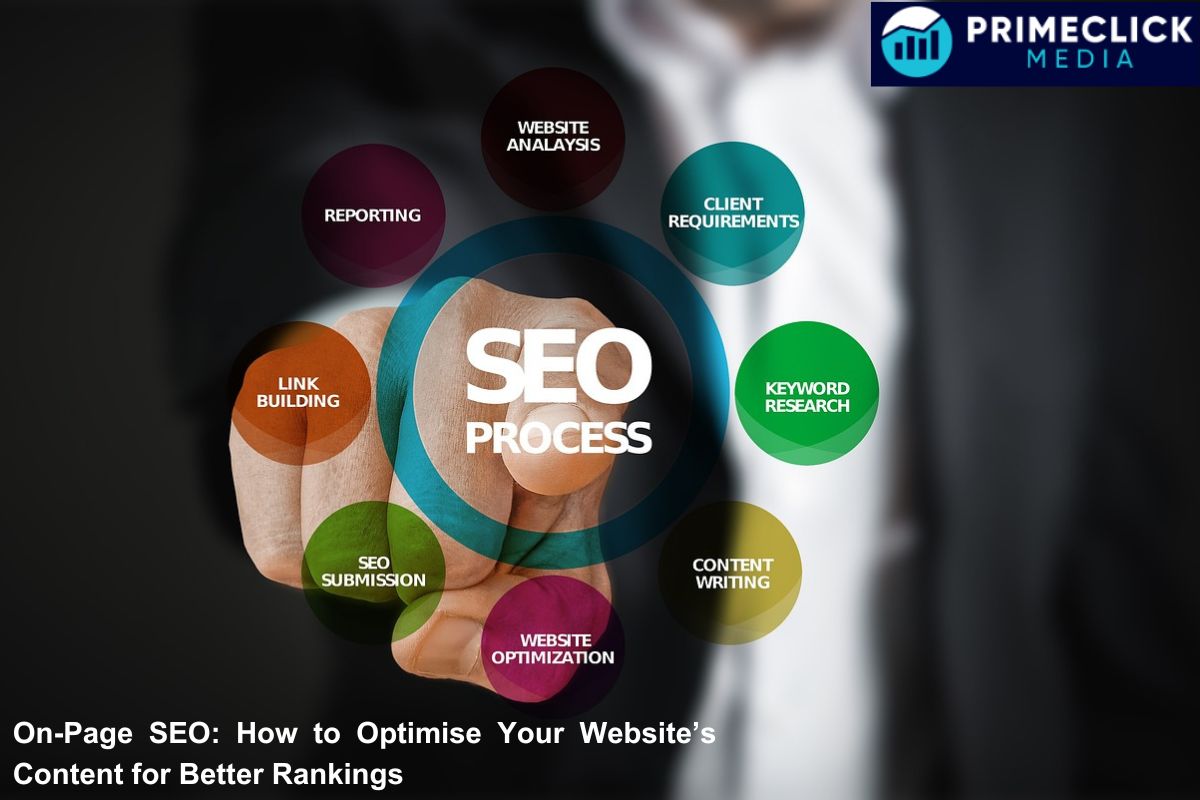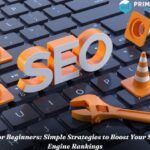In today’s competitive online world, visibility matters the most. Ranking high on search engines brings traffic and potential customers to your website. This is where On-Page SEO comes in. On-page SEO helps you optimise content for better visibility on search engines. This has to do with improving various elements on your site.
Here’s a guide on how to optimise your website’s content for higher rankings-
- Understand Keyword Research
Keyword research is the foundation of SEO. Find and choose the keywords, which many are searching for. As far as keyword selection is concerned, it is better to choose those keywords with high search volume but less competitiveness. However, you can make good use of tools like Google Keyword Planner. Once you have your desired keyword list, then you can use them organically in your content. Never overuse them since it may revoke the rankings.
- Optimise Your Page Titles
Page titles are one of the most important elements of on-page SEO. For any search engine, titles carry the highest priority in its process while indexing your content. Additionally, insert the relevant keywords in your title and preferably keep them under 60 characters. A good title must attract the eye of the reader and roughly hint at the contents of the page.
- Write Compelling Meta Descriptions
Meta descriptions provide a little explanation of what your page is about. They have no direct influence on rankings but improve a click-through rate. Therefore, keep meta descriptions concise, but add your keywords naturally in them. Their length should be between 150-160 characters. A good meta description should make users want to click on the link to your page.
- Use Header Tags Properly
Headers organise content in a readable format. You will only use H1 for the main title and H2 for subheadings. Use H3 or H4 if you need further sub-topics in such cases. Headers not only allow search engines to better understand your page’s structure, but they can also make the text easier to scan for a user.
- Focus on High-Quality Content
Content quality is one of the ranking factors. So, keep it focused on writing valuable content. Make sure your content is rich in information and helpful to provide it correctly and thoroughly. Furthermore, avoid keyword stuffing and keep your writing natural. Google rewards websites with relevant and readable content that is well-researched.
- Use Images and Alt Text
Images add beauty to the eye of your content. But search engines do not “see” images. Use alt text to tell each image, including relevant keywords. The alt text would help the search engine understand what an image might depict. Besides, it will make your web page accessible to people with visual impairments.
- Optimise URL Structure
Clean URL structure is an important part of good on-page SEO. The URL should be short, descriptive, and contain keywords, not be jumbled with random letters and/or numbers or symbols. A clear URL works in the interest of both the user and the search engine.
- Improve Internal Linking
Internal links are links to other pages on your website. They help with crawling by search engines but also facilitate the easy navigation of your visitors. Additionally, internal links encourage visitors to explore further on your site. When you link internally, ensure that the anchor text is descriptive and incorporates relevant keywords.
- Enhance Your Site’s Loading Speed
A slow website will negatively affect your rankings and user experience. Therefore, try to optimise the loading speed of the website. Use compression on images, caching, and minimise JavaScript files. Faster websites always help improve the user experience, which boosts rankings.
- Mobile Optimization is Essential
More people browse through mobile devices than at any other time in history. Your website needs to be optimised for mobile devices. Make use of responsive design and ensure how your site looks on different devices. Google favours mobile-friendly websites in search rankings.
- Improve Content Readability
Readability determines how many users interact with your content. It uses short paragraphs and sentences. Bullet points, lists, or even visuals need to disrupt the text. The more readable your webpage, the longer people will be on your site, and that improves ranking.
- Utilise SEO Tools for Better Optimization
SEO tools mainly allow you to understand how your website is performing. All important metrics can be easily monitored using tools such as Google Analytics, Ahrefs, and Moz. That reveals areas that should improve. Moreover, it gives you suggestions for some keywords and identifies the technical issues on your website.
- Write Unique Content for Each Page
Do not duplicate content across pages. It messes with search engines and harms rankings. Write unique, on-topic content for each page to increase your chance of ranking. Fresh, original content is valuable to the search engines.
- Use Social Media to Drive Traffic
Adding social media increases the traffic to your site. The more you share any content on different platforms, such as Facebook, Twitter, or LinkedIn, the bigger your reach is. Therefore, high traffic implies to search engines that you have worthwhile content. It also strengthens brand awareness and engagement.
- Monitor and Update Content Regularly
SEO is a consistent effort; you need to update regularly. Keep reviewing and updating your content so that it is current. Chances of the update will raise your rankings. Google likes websites that have fresh and updated content.
Why On-Page SEO Matters for Businesses in Nigeria?
It is important to the business, especially the local targeting clients. For example, on-page SEO can be used to target a local client by a digital marketing agency in Nigeria.
However, content optimization makes the agency attract users who are searching for digital marketing in Nigeria.
Similarly, other businesses which help people with Google ads in Nigeria are being supported by upping their visibility. On-page SEO also helps those focusing on advertising in Nigeria using digital since it makes them more accessible through websites.
Conclusion
Ranking improvement is not possible with on-page SEO. Good content and keyword placement improve readability. Keep in mind that on-page SEO is only effective if it is constantly monitored. Therefore, this, in turn, means that you have to analyse, update, and optimise your site regularly for the best outcome. This way, through those steps, you can attract more visitors and help grow your online presence.





